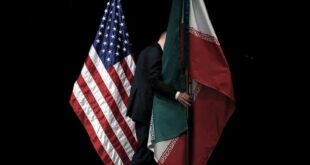 Iran will find other ways to use gas it planned to sell to UAE private energy company Crescent Petroleum if a long-running price dispute is not resolved, the Iranian oil minister was quoted yesterday as saying. Kazem Vaziri Hamaneh told Iran’s Kayhan newspaper that Tehran had issued an “ultimatum” to Crescent about resolving the differences, but did not give a deadline.
Iran will find other ways to use gas it planned to sell to UAE private energy company Crescent Petroleum if a long-running price dispute is not resolved, the Iranian oil minister was quoted yesterday as saying. Kazem Vaziri Hamaneh told Iran’s Kayhan newspaper that Tehran had issued an “ultimatum” to Crescent about resolving the differences, but did not give a deadline.
The UAE needs the gas to meet rapidly rising domestic demand from industry and power plants.
Crescent had expected first gas deliveries by mid-2006 but the deal ran into delays after some politicians in Iran said the country would not benefit from the exports because gas prices had risen sharply since the initial contract was signed.
Iran has said it will not export gas to the UAE until it secures a higher price.
“We have sent a message to Crescent. We have announced in a written form that we will not export gas until the price of gas is rectified and the conditions of the contract are rectified,” the minister said in the newspaper interview.
“We have given an ultimatum to Crescent, that if they delay this issue, we will find another use for our gas and definitely [Crescent] will not receive gas,” he added.
An Iranian official said last month construction of Iran’s side of the project was in the final stages. Industry sources said in March Iran would likely complete its side of the facilities in May and had struggled with technical problems and a shortage of labor.
Labor shortages have dogged new energy projects worldwide, contributing to rising costs and startup delays.
The initial agreement was for the supply of 600 million cubic feet per day.
The pipeline and gas processing plants in UAE waters have long been complete.
Crescent’s affiliate Dana Gas will process and transport the gas to utilities and industrial users in the UAE.
 Eurasia Press & News
Eurasia Press & News


